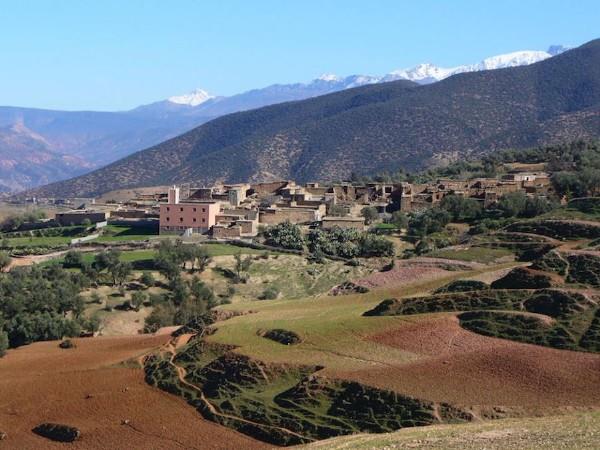
Bringing Relief to Mountainous Areas in Morocco
Rabat – On a recent visit to Morocco, I happened to be one of those unfortunate souls stranded in a small town for a few days in the Atlas Mountains following the storm that dumped an unprecedented amount of white flakes, an amount unseen in decades. Fortunately, I had relatives who took me in, just like many area residents who accommodated scores of stranded travelers.
Their misery cannot be equated with the unhappiness of those inhabitants who were cut off from the outside world because of the treacherous roads. Their mud houses leaked or collapsed altogether, their livestock perished, and their ailing loved ones and/or their pregnant women could not make it to the already meager health facilities. They were left to fight and improvise on their own.When civil society took to social media and put pressure on the authorities, help finally came—but the damage had already been done.
Natural disasters such as this one do happen, and the northern vortex that swept through Morocco and wreaked havoc on particularly hard-to-reach regions cannot be avoided. But this destructive event highlights the marginalization of these residents who toil to make the rugs we feast our eyes on and the coveted meats and organic foods we savor.These inhabitants are survivalists and all they need is a little attention; their demands are so simple that the cost to bring them some relief is minimal and infrequent. One could argue, however, that relying on government handouts is not the way to deal with the problem, and rightfully so.
So, what can be done? Sustainable projects would promote tourism and hospitality. These regions are endowed with breathtaking scenery and some of the most hospitable people in the country. Therefore, investing in roads and bridges would not only help ease the strain on these inhabitants, but it would bring them opportunities that would create jobs and ultimately promote financial security. That could lead to less reliance on government handouts, particularly during the harsh winter months. No one can deny the potential damage that this may cause to an already fragile ecosystem. But is that greater than the damage that these vulnerable citizens currently sustain?Redistributing resources would be a step in the right direction. Allowing these inhabitants to experience abject poverty—not because they are unwilling to work, but because they are cut off from the rest of the country—would mean shortchanging them, especially in a country that is soon to launch the first high-speed train in Africa.
We have seen efforts by the government to convey electricity and potable water to these regions, but more needs to be done to bring relief and dignity to hard-to-reach regions to promote self-reliance and stability. The authorities should put measures in place that would create immediate relief in case another natural catastrophe strikes.
The views and opinions expressed in this article are those of the author and do not represent any institution or entity.
© Morocco World News. All Rights Reserved. This material may not be published, rewritten or redistributed without permission.
Legal Disclaimer:
MENAFN provides the
information “as is” without warranty of any kind. We do not accept
any responsibility or liability for the accuracy, content, images,
videos, licenses, completeness, legality, or reliability of the information
contained in this article. If you have any complaints or copyright
issues related to this article, kindly contact the provider above.


















Comments
No comment